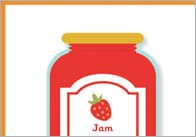The impact of the Early Years Foundation Stage (EYFS) – Ofsted report
Last week a survey assessing the impact that the Early Years Foundation Stage has had on provision and developmental outcomes for young children was published. Based on visits to 68 Early Years Foundation Stage providers (between September and December 20101) as well as detailed discussions with 12 local authorities, the survey had a particular focus on the personal, social and emotional development and communication, language and literacy skills of children aged 0-5. The EYFS was only introduced in 2008 so it is still very early to draw any definitive conclusions about it’s impact, however the report did make some interesting assertions:
– Outcomes for children and the quality of provision have improved since the
introduction of the Early Years Foundation Stage.
– For all groups of children, the proportion reaching a good level of development has risen since 2008, but differing rates of improvement mean that some groups still lag behind the rest.
– [on the whole] Ofsted’s inspection evidence and this survey show that childcare providers can and do deliver the requirements well.
– The quality of provision is likely to be better when practitioners understand how young children learn and develop and recognise the links between care and learning. Good and outstanding providers know why they do what they are doing and plan to ensure that they cover all aspects of children’s personal, social and emotional development and communication, language and literacy skills. They understand that assessment and self evaluation are not bureaucratic processes, but are the keys to improving outcomes for the children in their care.
One of the primary criticisms of the EYFS made by many early years practitioners is that it introduces childcare in to the formal education system and puts too much pressure on children. The report addressed this point directly stating that “the children that the inspectors observed during the survey were, almost without exception, enjoying their time”. The report also gave the introduction of the EYFS much of the credit for the increase in the number of childcare providers rated as outstanding (up from 58% to 68%).
These findings seem to support the sentiments of John Oates who wrote the following in the Autumn 2010 edition of The journal of the British Association for Early Childhood Education:
“The EYFS approach, as it is set out in the content of the guidance document, is to recognise four key elements that together provide a supportive context in early years settings within which children have freedom and adequate resources to experience, learn and develop in their own ways and paces. Far from being a rigid set of government prescriptions for formal teaching…[the] EYFS actually recognises the need to provide children with a wide range of learning opportunities with a lack of restriction, that they can explore in playful and creative ways. The EYFS is centred on the central principles of the uniqueness of individual children and their need for positive relationships with others, in environments that offer support for development and learning”.
The impact of the Early Years Foundation Stage report is a must read for anyone working within an early years environment in the UK.
Popular Teaching Resources
Stay Up To Date
Sign up for our newsletter and we’ll let you know when we create new early years resources.





